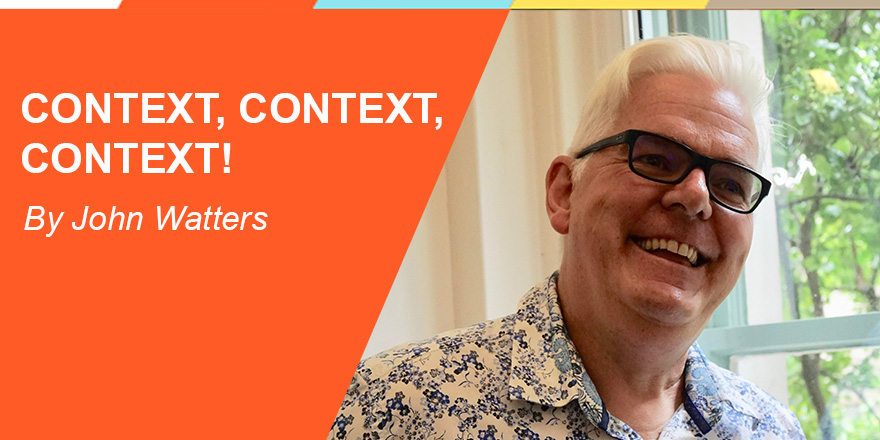

During lockdown we held some conversation sessions with our client and network community on “Reconsidering the Future”.People really valued the space to reflect and think before lockdown opened up, and particularly the approach of sharing some mindful moments in silence as we considered these questions. This was reflected back as valuable and an important leadership practice, to take a moment of pause – “to notice what is truly needed for me before responding, not just reacting. “
We structured the dialogues as an open conversation around these questions
Here are some of the themes emerging
We reflected on how people had sprung into action initially in a “flight/ fight” mode, but also shown that the “tend/ befriend” impulse was strong, an example of a more humane leadership emerging. Having a virtual window into everyone’s homes had helped people break down barriers and rounded out how they were seen as people. Leaders were valued most highly, who had communicated regularly in virtual town halls in an authentic and honest way, even when there was little clarity on what might happen next. Leaders have had to let go of control to allow rapid innovative responses to the crisis.
In one session we reflected on the Barratt Covid-19 values survey what is being valued by organisations and the people in them now is a shift from performance and control to adaptability , working together and people focus . This is based on a shift in addition to personal values towards the focus on wellbeing, caring and making a difference. Striking findings also suggest a gap between leaders who are focusing on agility, sustainability and innovation, whereas employees are looking for direction and communication as well as trust and engagement. This may in part reflect the perceived need for certainty in an uncertain world.
In our conversations many of us talked about our hope of the potential opportunity arising from Covid-19 of Building Back Better, in terms of a green recovery to tackle the climate emergency and the proliferation of initiatives we are seeing across the business world, UN and NGOs, such as https://unfccc.int/climate-action/race-to-zero-campaign and https://clubofrome.org/impact-hubs/climate-emergency/ . People talked about how the pandemic had made them even more aware of deeper systemic crises around climate, poverty and huge inequalities and their concerns about the economic impact of redundancies and job losses globally as we emerge from lockdown.
Since then we have experienced the global wave of protest sparked by the shocking death of George Floyd in the USA, and how this has galvanised support for Black Lives Matter from brands and companies around the world and we have committed our support and to working on our own re-education . (It is perhaps no co-incidence that the crisis of Covid-19 has enabled a “seeing into” other crises such as systemic racism).
However, we are aware of the tension that business is facing under extreme pressure, some sectors in crisis, some busier than ever. Participants felt leaders needed to pause and reflect as the sessions were enabling them to do. The question remains are most businesses still in survival mode and unable to take time to look at these deeper questions?
Many talked about the paradox of being isolated physically and more connected at the same time working at home, with a growth in networks to connect to but also how that would impact collaboration across complex organisations , noticing the tendency to shrink one’s circles of interaction, and the zoom fatigue and overload from days spent in virtual meetings . How will the connections be made across silos or between leadership teams? These might have happened informally in the office, now more circumscribed within diarised meetings you may not be invited to. We discussed the impact of the lack of personal face to face connection on relationships and strains that may show in leadership teams. The temptation to have reinforcing silos in organisations is even greater in a virtual world.
Organisations faced with a greater unifying purpose (e.g. supporting the NHS, saving our sector, etc) have found it easier to collaborate around the “WHAT” needs to be done rather than haggling over things like ownership, price and egos which normally get in the way.
The sense of gratitude for front line staff and key workers and help from the community was forefront and awareness that in a sense we have gone through a collective trauma, whilst this has shown up huge inequalities , such as those who have a garden, access to the outdoors and those not forced to go out to work for a daily wage and put themselves in danger from Covid-19.
Over the weeks we ran the sessions we noticed a shift to anger and frustration at chaotic emergence from lockdown, and for some a sense of loss of the calm space they had found. There was also a sense of having kept going and then realising when something small went wrong how disproportionate anger could emerge.
So, having been privileged to “host” these conversations we were left with a sense that organisations are at a cross-road following emergence from Covid-19 restrictions. Will they try to revert to the “old normal” (which of course had many failures for many people) or will they truly learn from their experiences and enhance the capabilities of their people by removing unhelpful restrictions and delegating more to their people who have displayed such agility and resilience to make rapid transformation a reality. In reconsidering their future will they truly learn to respond rather than react? Will you?
To discuss any issues arising please contact [email protected]
Fiona Ellis
Future Considerations Ltd
29 Adonis Street, Acropolis
Subdivision, Libis,
Quezon City,
Philippines 1110
Jon’s early career designing applications led to him becoming IT director for a market-leading multinational. His systemic perspective, allied with a background in psychology and subsequent leadership experience inside major organisations was followed by intensive learning in personal development, values systems and multiple intelligences. Brought together, these create a transformational perspective for understanding and developing organisations as living systems. Jon is a master trainer in Spiral Dynamics, a founder director of the UK chapter of Conscious Capitalism and a certified Spiritual Intelligence coach. He is the author of several books and articles and is developer of Relational Being, a visionary whole systems approach to evidence-based spirituality, complexity science, human emergence, societal change and conscious business. This breadth of experience and deep understanding informs his work as a consultant, coach, trainer and facilitator.